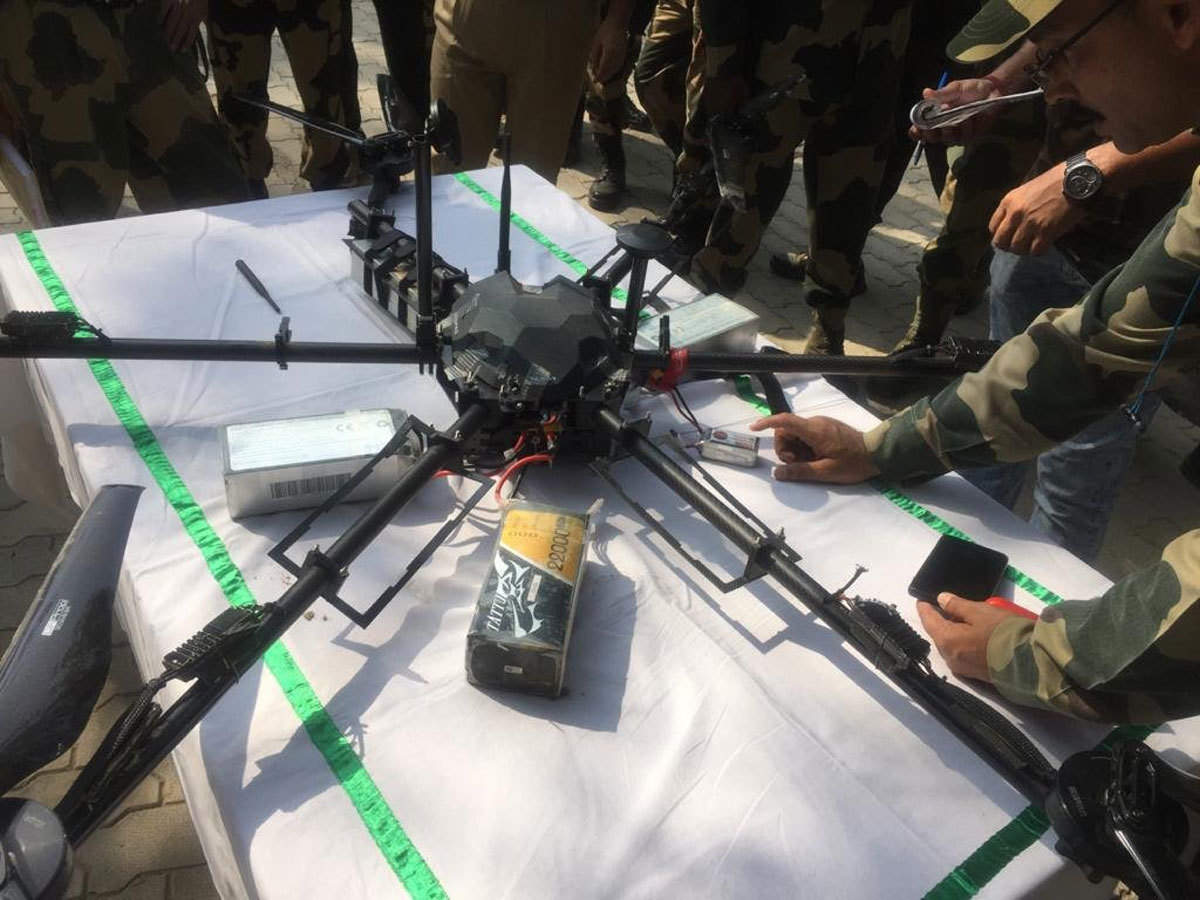‘All the drones the Indian security establishment has found being used by Pakistan-based state backed entities, are made in China’.
NEW DELHI: A significant anti-terror meeting comprising, among others, the five permanent members of the United Nations, that has been called on the request of India and is scheduled for October this year, is likely to bring international spotlight on Pakistan ISI’s new modus operandi to use drones to carry out terror attacks in India.
The threats posed by Unmanned Aerial System (UAS), including drones and quadcopters, which are not limited to using them as a tool to carry out suicide attacks but also as carrier of arms and drugs—something that India is now witnessing first hand—will be one of the three areas that the United Nations Security Council Counter-Terrorism Committee (CTC) will be discussing when it convenes for a special meeting in New Delhi on 29 October.
Apart from the emerging dangers of these harmless looking machines, this high-profile event
India is the presently chairing the CTC which has 14 other members—Albania, Brazil, China, France, Gabon, Ghana, Ireland, Kenya, Mexico, Norway, Russian Federation, United Arab Emirates, United Kingdom and United States. India’s UN envoy Ruchira Kamboj will chair the meet.
The significance of this meeting can be gauged from the fact that this is just for the seventh time that the CTC is meeting outside of New York. The last special meeting of the CTC, outside of United Nations headquarters, took place in Madrid, Spain, in July 2015 that focused on foreign terrorist fighters (FTFs).
While other countries, including Iran, Russia, Israel and US armed forces in Syria and Iraq, have in the past dealt with suicide drones, India for the first time faced this threat in June 2021 when two drones loaded with explosive material detonated at an Indian Air Force base in Jammu. The case, which was transferred to the National Investigation Agency (NIA) by the Ministry of Home Affairs (MHA), is still “under investigation” stage.
The NIA is also investigating a case of Amritsar when in August 2021, seven boxes containing arms, ammunitions and explosives were dropped at village Bacchiwind, Amritsar rural which were sent by Pakistan-based entities and meant for executing terror activities in the state. The NIA registered another case in Kathua, Jammu, in July after the local police intercepted another drone that had flown into India from Pakistan. The sudden increased use of drones, which eliminates the danger that the terrorists otherwise face while trying to enter into India to drop arms and carry out disruptive activities in military installations, caught the Indian security establishment by surprise and the twin quad-copter drone attack at the IAF base acted as an event that broke their slumber. On 29 June 2021, a high-level meeting was chaired by Prime Minister Narendra Modi in which measures and strategies to counter “weaponised drones used for terror purposes against strategic and commercial assets” were discussed. Among those present in the meeting were Defence Minister Rajnath Singh, Union Home Minister Amit Shah, and National Security Advisor (NSA) Ajit Doval.
The October CTC meeting becomes more important as China too will be attending it. All the quadcopters, drones that the Indian security establishment has found to be used by Pakistan-based state backed entities, are manufactured in China. The CTC was established as a dedicated body in the aftermath of the 11 September attacks. The CTC is assisted by an Executive Directorate (CTED), which carries out its policy decisions and conducts expert assessments of the 193 United Nations Member States. More than 20 Security Council resolutions pertaining to the CTC and CTED have been adopted over the last seven years, which is an indication of the “hold” of CTC at the global level.
The CTED, as a part of its responsibility, conducts country visits to assess Member States’ counter-terrorism efforts, including progress made, remaining shortfalls, and priority areas for technical assistance needs, as well as to identify terrorism-related trends and challenges and good practices employed in the implementation of relevant Security Council resolutions. Visits to Member States, conducted on the Committee’s behalf, is the primary tool to be used by the CTC to effectively fulfil its mandate to monitor, promote and facilitate Member States’ implementation of Security Council resolutions.

